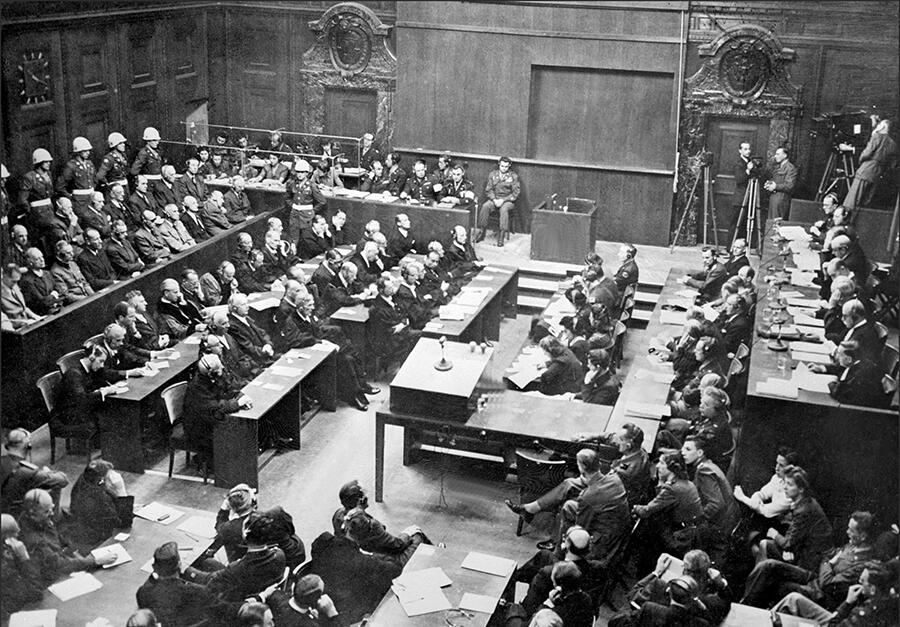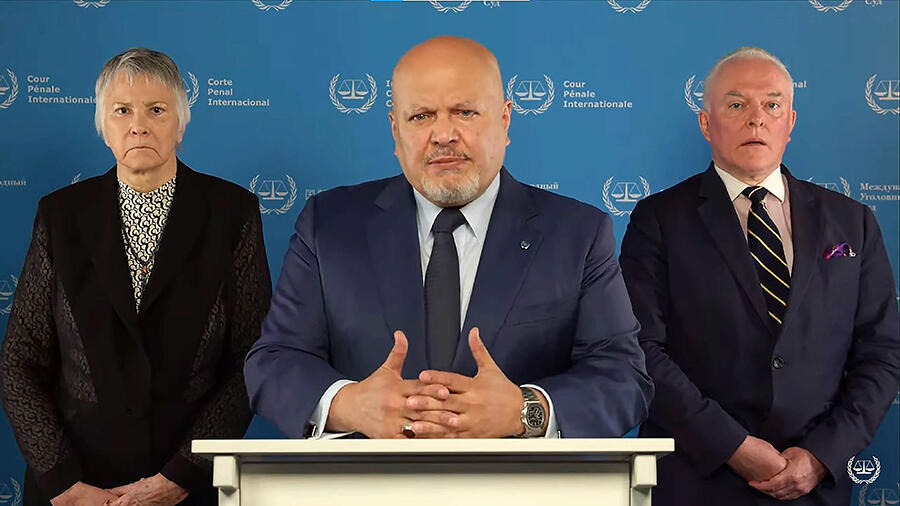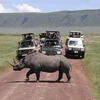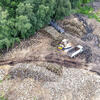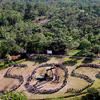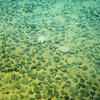You are here
Nations in the line of sight of international law

When did international law come into being?
Raphaëlle Nollez-Goldbach1: Contemporary international law was born at the end of World War II, following the upheaval of two successive world wars and the genocide perpetrated by the Nazis. The world’s nations agreed to cooperate more closely to lay the foundations of a common international legal code. In 1945, a new international organisation was set up, the United Nations (UN), with the mission of maintaining peace and endowed with the ability to impose sanctions. One of the tools that the UN adopted for settling conflicts between nations was the creation of the International Court of Justice (ICJ), which has the power to adjudicate cross-border disputes. At that same time, the idea also emerged of establishing an International Criminal Court (ICC) for trying individuals, especially heads of state, responsible for the most serious crimes. But the project was put on hold because of the Cold War, and the ICC did not see the light of day until 2002.

Before the ICC became operational, several special tribunals had been assembled. The first in the history of global criminal justice were the Nuremberg and Tokyo International Military Tribunals, formed to try the Nazi leaders in 1945 and then the major Japanese war criminals in 1946. Then, to address new mass crimes committed at the end of the Cold War, two more ad hoc international criminal tribunals made it possible to try the crimes committed in the former Yugoslavia in the 1990s, as well as the genocide perpetrated against the Tutsis in Rwanda in 1994.
On what grounds can the ICJ and ICC prosecute a nation or an individual?
R. N.-G.: The ICJ settles only disputes between nations – it does not judge individuals. This means that it’s in charge of ensuring the enforcement and interpretation of the rules of international law that govern inter-state relations. If a country considers that a rule has been violated, or that one of its rights has been infringed, it can refer the matter to the ICJ and ask the court to settle the conflict between it and another country.



The ICC, on the other hand, tries individuals suspected of being responsible for crimes. It is a criminal court, with the power to punish perpetrators, declare them innocent or guilty, and hand down prison sentences. It has jurisdiction over four crimes: first of all ‘genocide’, which designates an act intended to destroy an entire national, ethnic, racial or religious group. Secondly, ‘crime against humanity’, which concerns acts committed against a civilian population as part of a generalised or systematic attack (murder, torture, rape, forced displacement, ‘disappearances’, etc.). Thirdly, ‘war crime’, which means crimes committed against civilians or combatants who are no longer able to fight (wounded or prisoners). In this category, the ICC issued an arrest warrant in March 2023 against Vladimir Putin and Maria Lvova-Belova, his Commissioner for Children’s Rights, for the war crime of ‘illegal deportation’ of Ukrainian children. Lastly, the fourth category is ‘crime of aggression’, which constitutes the illegal use of force by one nation against the sovereignty, territorial integrity or political independence of another state.
What are the limits of international justice?
R. N.-G.: It doesn’t apply to all countries. The ICJ has competence only when the parties submit to its jurisdiction, either by a general declaration of acceptance of its authority (which only 74 countries have signed) or on a case-by-case basis when the parties concerned are involved in a dispute. The latter possibility, allowing nations to accept the ICJ’s jurisdiction for a specific case, enables the court to settle certain disputes (border limits, sharing of natural resources, etc.). The jurisprudence and legal opinions established by the ICJ have made international law a viable force.
As for the ICC, whose jurisdiction is also not mandatory for all nations, 123 states (out of the 193 members of the UN) have accepted its authority – even though countries as powerful as the United States, Russia, China, India and Israel have so far opted out. The Court can intervene only if the crime was committed within the territory of an ICC member state, or if the alleged perpetrator is a citizen of one of those states.



Nonetheless, major conflicts can result in an investigation by the ICC. For example, because Palestine has chosen to join the ICC, Palestinians can be prosecuted for crimes committed in Israel, and Israelis for crimes committed in Palestinian territory. The same applies to Russian soldiers committing crimes in Ukraine, because Ukraine has accepted the ICC’s authority, even though Russia refuses to recognise any form of international jurisdiction.
Didn’t it take several years for the ICC to establish its legitimacy?
R. N.-G.: During its first 20 years of existence, the International Criminal Court only dealt with cases concerning conflicts in Africa, and was suspected of partiality. In addition, while certain warlords were convicted, all of the indicted ministers and heads of state escaped justice, either because their trials ended in acquittals for lack of sufficient evidence or because the defendants had fled and couldn’t be found.
But in recent years this situation has changed. The former prosecutor Fatou Bensouda2 had begun investigating crimes against humanity and war crimes committed in Afghanistan by the Taliban, the regime’s security agencies and US forces, directly targeting the CIA. The investigation was finally authorised by the judges in 2020. When Karim Khan took over as chief prosecutor in 2021, we saw a real shift in his office’s criminal law policy. No matter how powerful a nation might be, its leaders can now be the target of arrest warrants. As evidence, the ICC issued an arrest warrant for Vladimir Putin in 2023. And in May 2024 Khan asked the judges to hand down similar warrants for Israel’s Prime Minister Benjamin Netanyahu and his Defence Minister Yoav Gallant, as well as three high-ranking Hamas leaders.

Proceedings were initiated concomitantly for ‘war crimes’ and ‘crimes against humanity’ in both cases, in order to show that ‘the lives of all human beings have equal value’, as Prosecutor Khan put it. But the charges are different for the two sides: the Israeli officials are suspected of ‘extermination and/or murder, persecution and other inhumane acts, wilfully causing great suffering or serious injury to body or health, cruel treatment, intentionally directing attacks against a civilian population and starvation of civilians as a weapon of war’, whereas the Hamas leaders have to answer for ‘murder, rape and other acts of sexual violence, torture, extermination and taking hostages’. Now it’s up to the three judges of the ICC Pre-Trial Chamber to determine, ‘within a reasonable time’ (no more than a few months), whether the arrest warrants are justified according to the evidence submitted by the prosecution.
Are ‘small’ countries now more inclined to appeal to international justice?
R. N.-G.: Indeed, even countries that do not figure among the big world powers are taking advantage of this new justice system. For example, in March 2024 Nicaragua filed suit in the ICJ against Germany, accusing it of aiding the potential commission of genocide in Palestine by delivering military equipment to Israel. On a completely different issue, namely the consequences of global warming for small island states whose territory is threatened by rising sea levels, several Pacific and Caribbean nations have joined forces, on the initiative of Vanuatu, to submit a request for an ICJ ruling on the subject. Such undertakings were previously almost unheard of at the international level.

Still, the ICC has no police powers…
R. N.-G.: Indeed, the Court’s biggest difficulty is having access to suspects. Only those nations that have ratified the ICC Statute are obligated to arrest anyone within their territory who has been indicted by the Court. Because of this, many arrest warrants are never carried out. For example, the former Sudanese president Omar al Bashir, who was the first person to be prosecuted by the Court for genocide (during the Darfur war, between 2003 and 2008), was never arrested while he was in power. He was later ousted by a coup d’état, but has been held in Sudan since then by the new government, which refuses to transfer him to the ICC. Yet the Court only tries defendants who are present in the courtroom – never in absentia. The pre-trial proceedings can take place in the absence of the accused, but not the trial itself.
How does your research assess the impact of these court decisions on international conflicts?
R.N.-G.: I observe how international diplomacy as well as the speeches and actions of government officials are affected by this new international law, by international legal proceedings. I look into the consequences that they’re having on current conflicts, crimes that are being committed and possible peace negotiations.
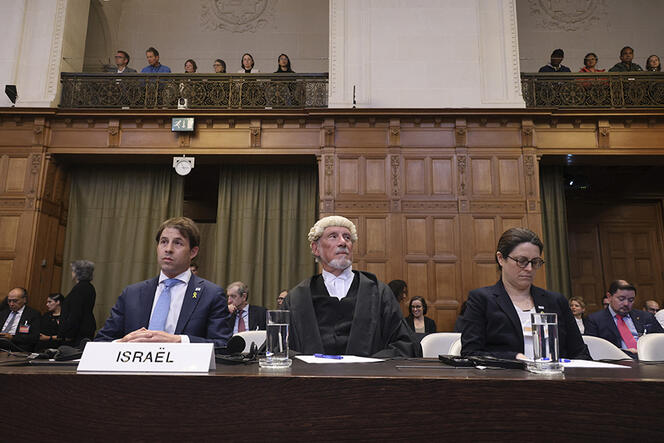
One definite effect is that even though ruling heads of state who are named in an arrest warrant can escape international justice, they can no longer take refuge in exile or obtain amnesty. Above all, the legal proceedings have a significant societal and political impact, making it possible to proclaim the law and legitimise a legal truth (thus delegitimising the arguments put forth by certain leaders). In addition, all cases tried by the ICJ and the ICC are public. It’s possible to attend them in person or follow them online, and the records of the hearings are posted on the courts’ websites.
So statements like those of the Israeli Defence Minister Yoav Gallant, who said about the Palestinians, ‘I have ordered a complete siege on the Gaza Strip. There will be no electricity, no food, no fuel. . . . We are fighting human animals and we are acting accordingly,’ are no longer acceptable. And if tomorrow one of the two courts were to say that the leaders of a given nation have committed genocide, crimes against humanity or war crimes, the political and moral repercussions would be considerable, even though the legal effect would perhaps remain weak, with no arrests being made.
Even when a suit is rejected, the outcome is significant. For example, in the case of Nicaragua vs. Germany, the ICC judges concluded that ‘the circumstances’ did not allow them to impose the requested emergency measures, but that they would continue to examine the merits of the case. We have also noted that Germany plans to resume its payments to the United Nations Relief and Works Agency for Palestine Refugees in the Near East (UNRWA). It had previously halted those payments, which were the subject of one of Nicaragua’s allegations. ♦
For further reading
La Cour pénale internationale (“The International Criminal Court” – in French), Raphaëlle Nollez-Goldbach, PUF, “Que-sais-je?” coll., 2024.
Quel Homme pour les Droits ? (in French), Raphaëlle Nollez-Goldbach, CNRS Editions, 2015.
- 1. A CNRS research professor at the CTAD (CNRS / Université Paris Nanterre), Raphaëlle Nollez-Goldbach teaches international public law, international criminal law and international negotiations at ENS-PSL. She was awarded the CNRS Bronze Medal in 2019.
- 2. The prosecutor and deputy prosecutors are appointed by the ICC’s “Assembly of States Parties” for a non-renewable term of nine years, just like the Court’s judges. The Gambian lawyer Fatou Bensouda was named chief prosecutor by consensus in 2011. In 2021, after months of discussions, Karim Khan (UK) was elected by secret ballot to succeed Bensouda.


